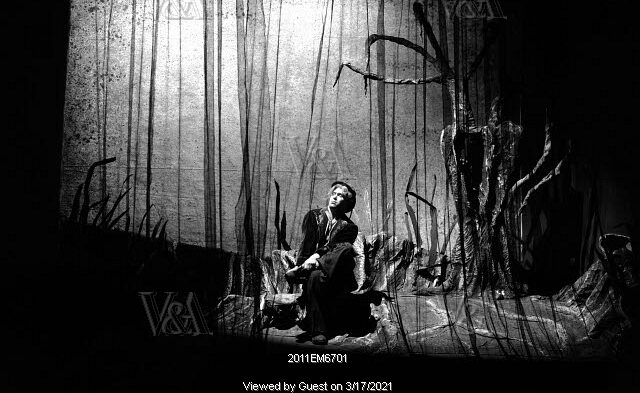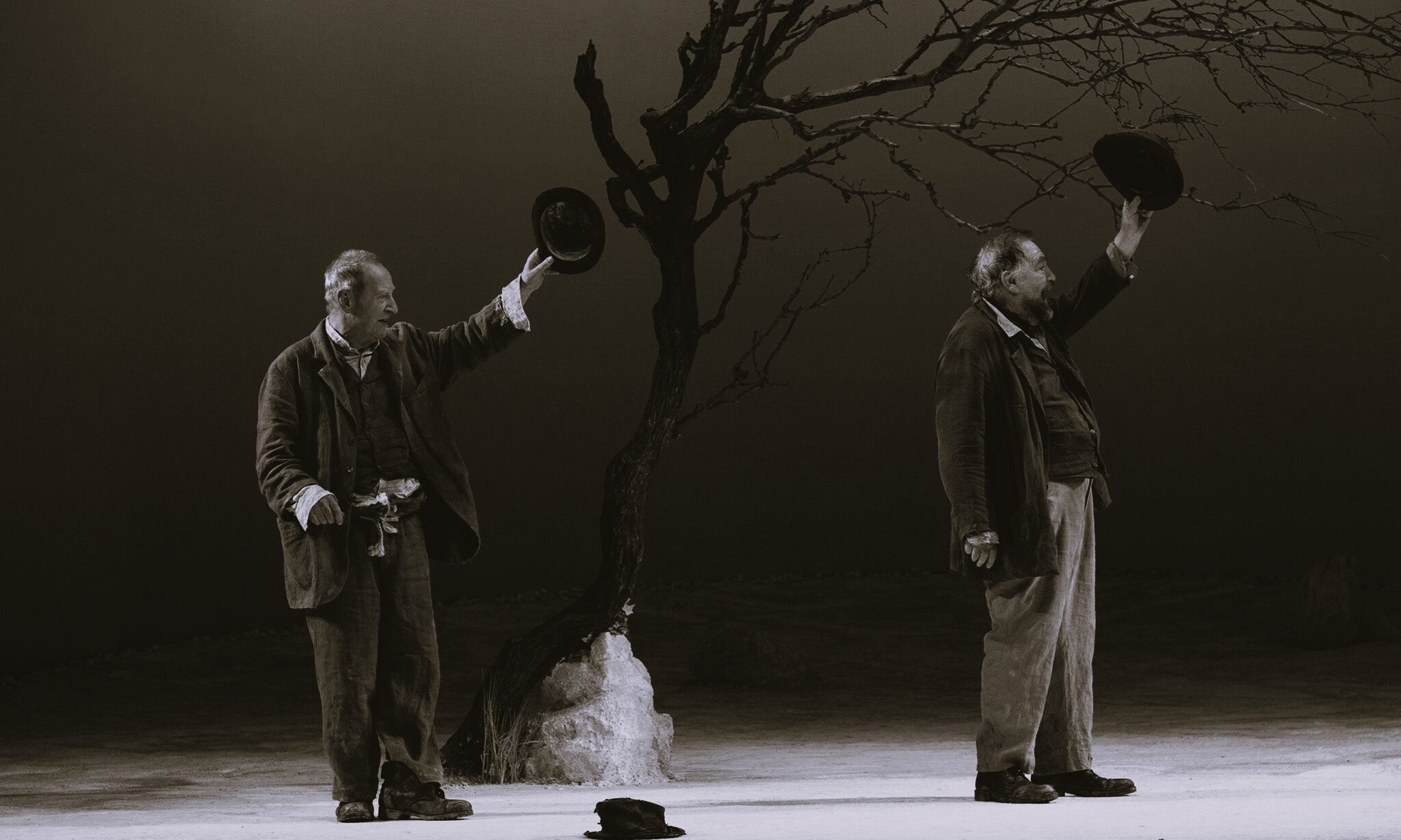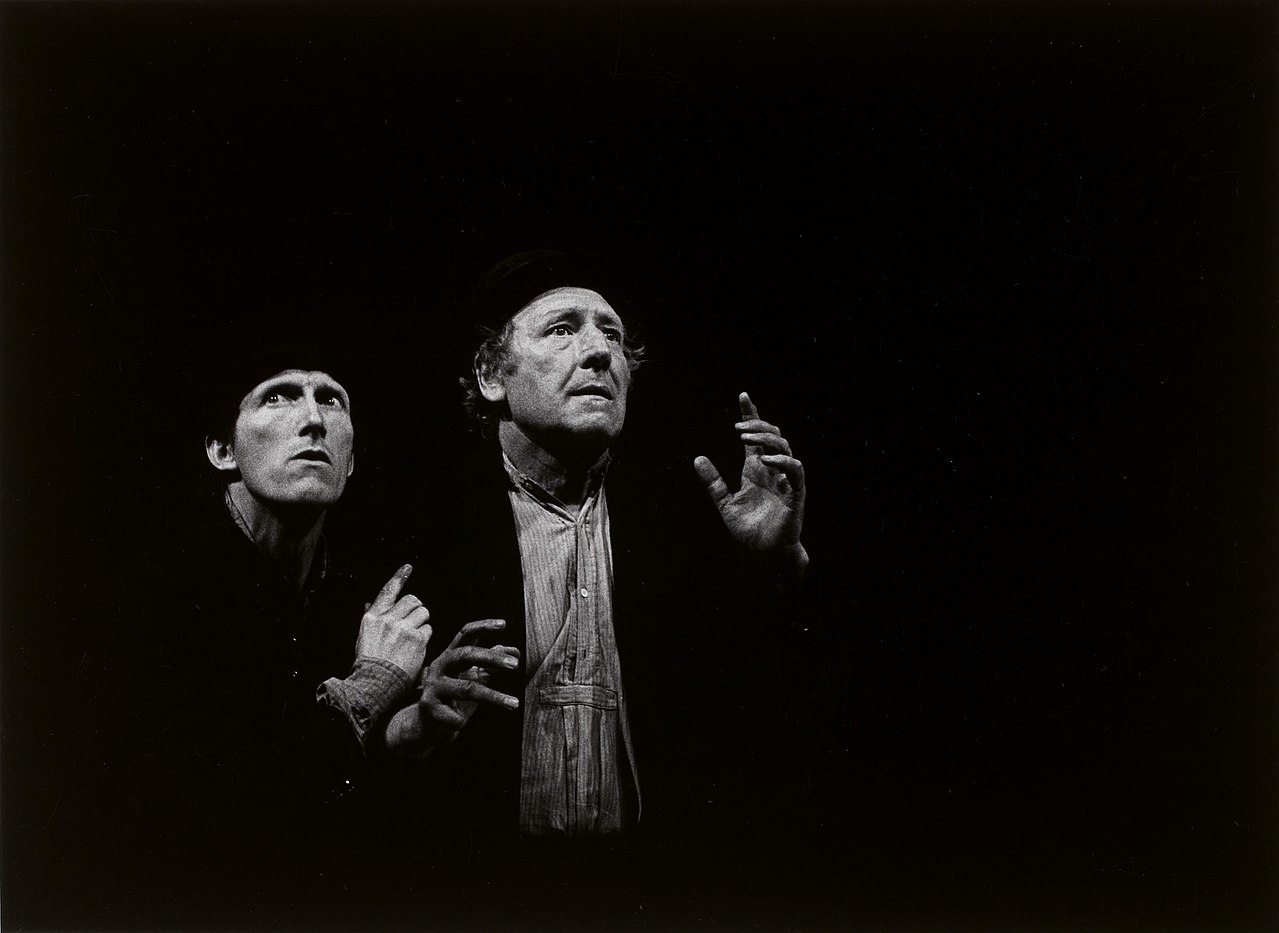By Katerina Taxiaropoulou,
“Nothing happens, nobody comes, nobody goes, it’s awful!”
Samuel Beckett, quote from Waiting for Godot.
It is a cold, January evening of 1953. Inside the small Théâtre de Babylone, Paris, a few people calmly take their seat, completely unaware of what they are about to witness: a barrage of wildly irrational, often non-sensical actions, performed by characterless characters out of any specific spatial and temporal context. Written within four months, Samuel Beckett’s En attendant Godot shook the postwar audience with its unconventional treatment of dark existential themes and linguistic experimentation. Next, Beckett himself translated the script into English, also adding Hiberno-English idioms as tribute to his Irish origin. Waiting for Godot premiered in London in 1955.
Upon leaving the theatre, people felt restless in their attempt to make sense of what they had seen. As Normand Berlin has stated, Waiting for Godot presents the spectators with a “philosophical puzzle” (The Massachusetts Review). Two tramps, Vladimir and Estragon or, as they call each other, Didi and Gogo, meet at a crossroad by a leafless tree. Together, they engage in a variety of discussions, none of any apparent significance, and at two points they contemplate suicide. Soon, they reveal that they are waiting for a man named Godot. Now, who this Godot is and whether he will actually come, they cannot tell. Instead of this mysterious figure, Pozzo, an imperial traveler, and his silent slave Lucky appear on stage. Controlled by a rope, the latter shows a “dog-like devotion” to his master (Mercier 53). Yet, when they reappear in the second act, the roles are reversed as now blind Pozzo needs Lucky to move around. Near the end, a Boy comes and informs Didi and Gogo that Godot will not be arriving tonight but surely tomorrow. The two tramps then announce that they will leave, but remain motionless as the curtain falls.
Given drama’s traditional definition, that of a story with some conflict forming the basis for action and character development, it appears that, with this play, Beckett “boldly rejected the idea, making inaction his focus” (The Massachusetts Review). Didi and Gogo cannot do, but only talk, switching from poetry of high emotions to pure farce and so creating a stage-bound universe that lies outside any framework of conceptual reality:
ESTRAGON: In the meantime, let us try and converse calmly, since we are incapable of keeping silent.
VLADIMIR: You’re right, we’re inexhaustible.
ESTRAGON: It’s so we won’t think.
VLADIMIR: We have this excuse.
ESTRAGON: It’s so we won’t hear.
VLADIMIR: We have our reasons.
ESTRAGON: All the dead voices.
VLADIMIR: They make a noise like wings.
As indicated by the above quote however, although this play does not make sense in an obvious or conventional way, it does give expression to central issues of its age in a uniquely meaningful way. Composed between 1948 and 1949, Waiting for Godot was deeply influenced by the irrational atrocities committed during World War II. Beckett’s play along with a number of other post-war works belongs to the category of The Theatre of the Absurd, whereby the spectators are confronted with “a grotesquely hightened picture of their own world: a world without faith, meaning and genuine freedom of will” (Esslin 6). In Beckett, Absurdism takes the form of melancholy, painted with a feeling of futility born from the disillusionment of old age and chronic hopelessness.

In the first scene, Didi casually narrates how he spent the night in a ditch as he received beatings from a group of anonymous assailants. This however goes without comment, as if it were something regular, common and well accepted. Preoccupied mostly with mundane things such as food and physical pain, Didi represents the war victim who has unconsciously decided to never try to reflect upon the violence and has even deleted his memory of it. According to Al Alvarez, forgetfulness is “the cement binding Estragon’s and Vladimir’s relationship together. Estragon continually forgets, Vladimir continually reminds him; between them they pass the time” (Beckett 2nd Edition).
Apart from forgetful, Didi is extremely lethargic. Sleep is another indicator of Didi’s wish to avoid thinking. In contrast, Gogo is restless. He represents the war victim who just cannot let go and so keeps asking religious and philosophical questions. For example, he is overwhelmed by a need to do something, not waste valuable time. Simultaneously however, a feeling of pointlessness in all action numbs him.
As professor Michael Gurnow states, Vladimir’s pain is “primarily mental anguish, which would thus account for his voluntary exchange of his hat for Lucky’s, thus signifying Vladimir’s symbolic desire for another person’s thoughts” (A Study of Symbolism and Allusion in Samuel Beckett’s Waiting for Godot). Both Didi and Gogo are wearing bowler hats, which they pass on to each other in a juggling ritual, reminiscent of the comedic duo of Laurel and Hardy from Duck Soup.

Humor plays a central role in the play. In fact, Beckett subtitled the English version of his play “a tragicomedy in two acts” (The Massachusetts Review). Looking at the tragedy of human condition, which is the contradiction between our natural desire to find meaning in the Universe, and the Universe itself which is completely meaningless, Beckett finds the courage to laugh. In act Ⅰ, once Didi and Gogo receive the news that Godot will not come, they become hopeless and consider suicide. Soon however, the mood shifts as Gogo makes an offhand comment about how hanging will give them an erection. Didi hears this information with such excitement that it produces a hilarious reaction. In act two, when the two tramps learn that Godot will not come again, they first try to hang themselves from the tree, then they fight about who is going to do it first, arguing about the physics of it like an old couple. In the end, they realize that they do not have a rope and so decide not to proceed.
Suicide emphasizes the existential themes of the play. Living in France during the first half of 20th century, Beckett came into contact with philosophers like Albert Camus, a major representative of Existentialism. In his book, The Myth of Sisyphus, Camus sees the hero’s sentence to roll a boulder up a hill only to have it roll down again as a metaphor for people’s struggle against the absurdity of life. He claims that one must “accept the fact of this absurdity” and become a “rebel” by living life anyway (Britannica). With this courageous acceptance of the struggle against defeat, people gain definition and identity.
“Why are we here, that is the question? And we are blessed in this, that we happen to know the answer. Yes, in this immense confusion one thing alone is clear. We are waiting for Godot to come…We are not saints, but we have kept our appointment.”
Samuel Beckett, quote from Waiting for Godot.
Didi and Gogo never actually commit suicide. They keep showing up every day, waiting for Godot. Even though they sense that he is probably not coming, that their hopes will never be fulfilled, they decide not to give up. In the meantime, they stick together, laughing at life to pass the time.
References
- The Myth of Sisyphus. brittanica. Available here
- The Theatre of the Absurd. Jstor. Available here
- Traffic of our stage: Why Waiting for Godot? web.archive. Available here
- No Symbol Where None Intended: A Study of Symbolism and Allusion in Samuel Beckett’s Waiting for Godot. web.archive. Available here
- Alfred Alvarez. Beckett. Viking Adult. New York. 1973.
- Beckett/Beckett: The Classic Study of a Modern Genius. Goodreads.com. Available here




